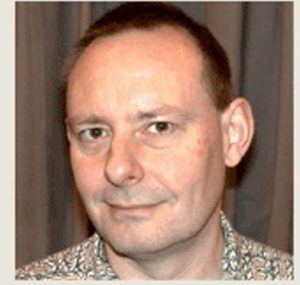The fourth national meeting of Psychology Politics Resistance (PPR) since the network was founded in 1994 took place in Manchester on Saturday 14th July, Bastille Day. The day marked the strong links that have been established between PPR and Asylum magazine.

Asylum carried the subtitle ‘magazine for democratic psychiatry’ when it was founded over a decade ago, and it has now broadened its remit to include campaigning around all forms of psychiatric, psychotherapeutic and psychological abuse and to provide a forum for discussion of activities and alternatives. Asylum is now effectively the newsletter for PPR, and not only PPR. It gives voice to many other groups, some of whom were represented at the Bastille Day event.
Terence McLaughlin, executive editor of Asylum, opened the day by reminding us that the word ‘asylum’ comes from the ancient Greek words meaning ‘against’ and ‘being seized by the state’. To fight for the right to asylum, then, has always been a revolutionary demand, and it is particularly important now to link the demand for the right to asylum as a safe place to be when you cannot cope and the right to asylum as a safe place when you are fleeing persecution. The Bastille Day conference brought together those two aspects of ‘asylum’, and the two-way effect of questioning how we treat ‘mental health’ and how we treat ‘asylum seekers’ is something that we will follow through now after the conference.
Alec Jenner, a psychiatrist who was one of the founders of Asylum magazine, described how important the early initiatives in Italy to close the large mental hospitals were for the early years of the magazine, and Phil Thomas, who is also a psychiatrist, spoke from the Critical Psychiatry Network about the growing opposition the way the pharmaceutical companies set the agenda for the biologisation of mental health care. Vera Martin from Saheli Asian Women’s Refuge spoke movingly about how women suffer in many ways as a result of the intersection of oppressive practices in mental health provision and immigration laws. Clare Barraclough described the workings and verdict of the Russell Tribunal on Human Rights in Psychiatry which met in Berlin a fortnight before (www.freedom-of-thought.de).
The audience for the plenary session in the main body of the hall and up in the galleries then participated in a lively discussion which made it clear that the day would not only be spent sitting listening. It would involve people speaking for themselves. Well over 100 people came along. There were well-attended workshops in the morning on women and radical mental health, radical counselling practice, inter-country adoption and worker/patient cooperatives.
In the lunch hour participants ate sushi and sandwiches. Perhaps this will set a new trend for innovative food at such events. Rob Evans played tabla drums in the main hall and Carol Batton, national poet for the Hearing Voices Network (www.hearing-voices.org.uk), performed some of her best pieces (e.g., ‘I`d rather be alone / with a schizophrenic / than a psychiatrist’). Carol’s poems appear regularly in Asylum magazine. A video from Isobel Irvine of the Liverpool ‘Mad Women’, on ECT, was shown in the main hall in the afternoon, and the Liverpool ‘Mad Women’ stall had a bright display of balloons and leaflets about their recent events. Behind the Hearing Voices Network stall, as a reminder of her recent death and life, there was displayed a finger painting ‘Life Daughter’ by Mary Barnes.
The afternoon workshops ranged from discussions of disabled people’s oppression to discussions of ‘psychophobia’ and ‘mad pride’. (www.madpride.net). There was also a liberation theatre workshop and a meeting with the Committee to Defend Asylum Seekers (www.defend-asylum.org). The Committee was also represented in the final plenary session, where Ed Mynott pointed out that the voucher system was being extended already in Belgium, and that it had unpleasant consequences for the distribution of aid to people on incapacity benefit as well as those who are seeking asylum. Rufus May, a clinical psychologist and psychiatric system survivor, introduced a video clip reporting on the picket the Monday before the conference outside the Royal College of Psychiatrists conference in London. Helen Spandler from PPR and ANL spoke about the launch of the group ‘Psychologists Against the Nazis’, which now has leaflets and badges which many people were buying and wearing during the day (www.anl.org.uk).
Karen Reissman, a psychiatric nurse who was Socialist Alliance candidate for Blackley in the election, drew issues together around mental health and the current law and order agenda of the new labour government (www.socialistalliance.net). The murder of a young man two days before the conference, justified because he had the label ‘schizophrenic’ was discussed in the first plenary session, and the final plenary session unanimously endorsed a press statement from the conference: ‘This meeting of PPR Asylum in the 21st Century deplores the shooting dead of Andrew Kernan by the police in Liverpool. This action was both unnecesary and an insult to civilisation’. Someone commented from the floor that now we know who the real ‘psychokillers’ are.
There were visitors from Italy and Greece at this event, and a Turkish video production team were on hand throughout the day to record key moments. In the evening Mad Pride North West organised a fantastic poetry and music event in association with PPR, the finale to Mad Pride week Apart from the free crisps, MC Pascha, Quibilah Montsho and Mike Garry read poems and The Ceramic Hobs from Blackpool headed the live band line up. Asylum and PPR were the first and last on the floor, dancing til early morning. If you weren’t at the day, dance with us next time. And in the meantime why not subscribe to Asylum, where detailed reports on the contributions to Bastille Day will appear and where information on other events are signposted.
